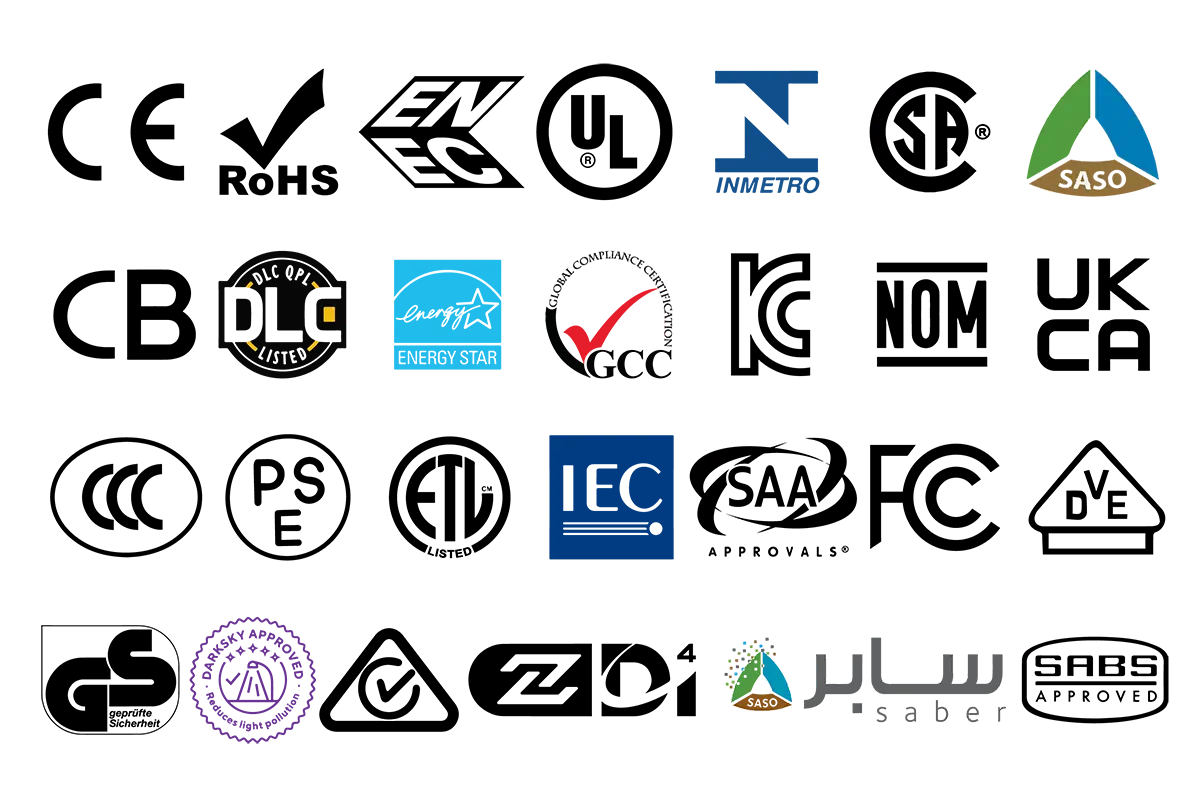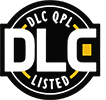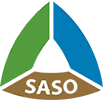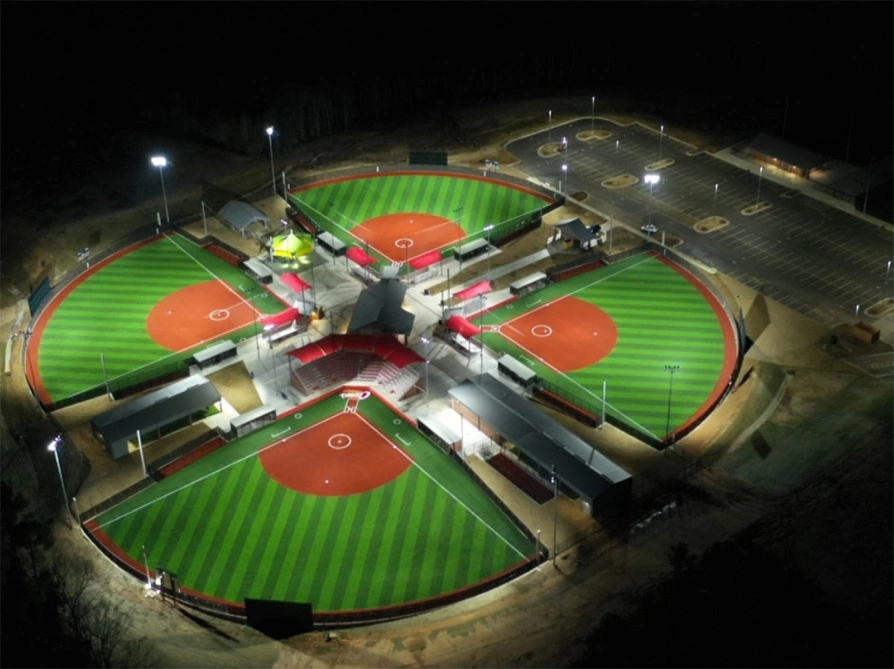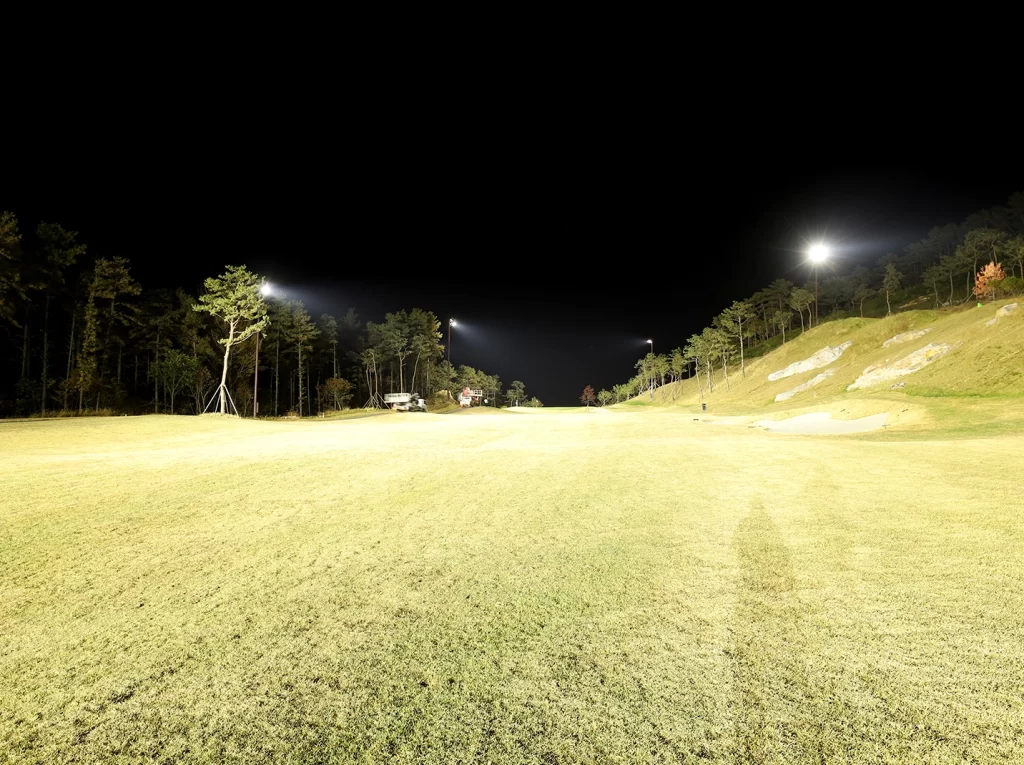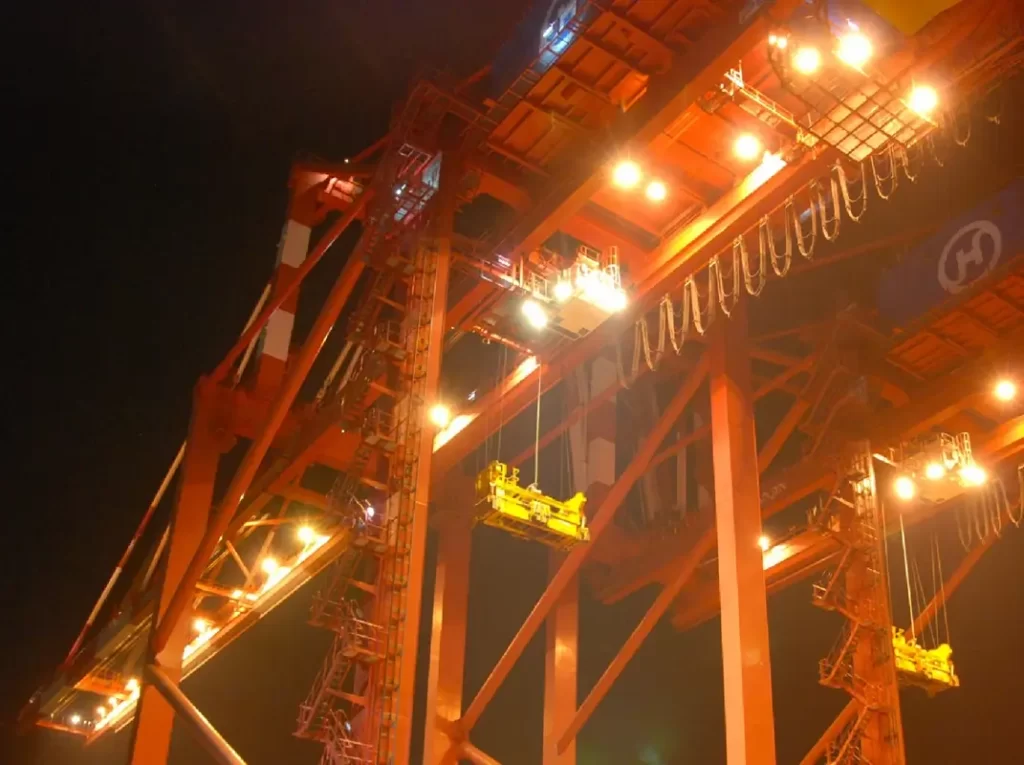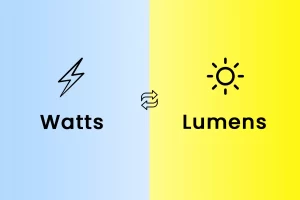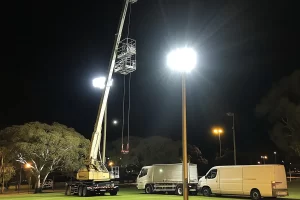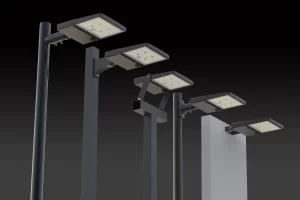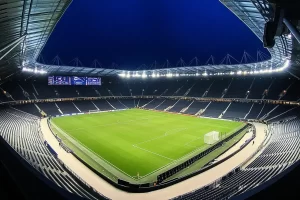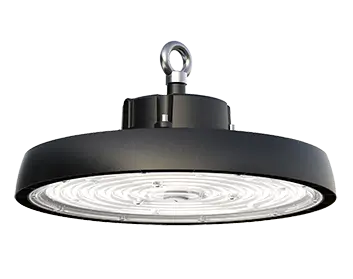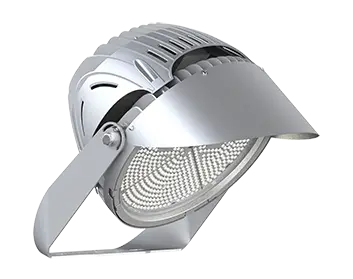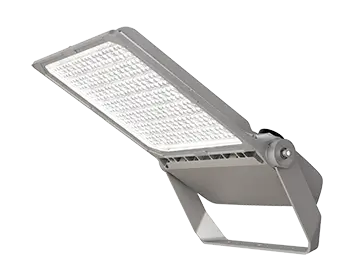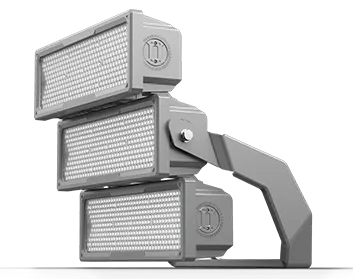When manufacturing or distributing LED lighting products, obtaining certifications is critical not only for compliance but also for market acceptance, safety, and performance validation. Lighting certifications are governed by regulatory bodies and organizations in different regions, each focusing on various aspects like safety, quality, energy efficiency, and environmental impact. Below is a comprehensive breakdown of some of the most recognized certifications in the lighting industry, detailing the requirements, purpose, and importance of each.
CE Marking (European Economic Area)
The CE Marking is a mandatory certification for products sold in the European Economic Area (EEA). It signifies that a product complies with EU safety, health, and environmental protection standards. The CE mark is essential for ensuring that LED lighting products meet European Union regulations regarding electrical safety, electromagnetic compatibility (EMC), and environmental impact. For manufacturers, obtaining CE marking is essential for selling lighting products in the EEA.
RoHS (Restriction of Hazardous Substances)
RoHS is a European Union directive that restricts the use of certain hazardous substances in electrical and electronic products. The certification ensures that lighting products do not contain harmful levels of substances like lead, mercury, and cadmium. RoHS is mandatory for products sold in the EU and is a key part of the EU’s commitment to environmental sustainability. It is also increasingly being adopted globally, making it an important certification for any manufacturer seeking to sell LED lighting products in international markets.
ENEC (European Norms Electrical Certification)
The ENEC certification is a voluntary mark issued by independent testing organizations to demonstrate compliance with European safety and performance standards. The ENEC mark is recognized across the European Union and indicates that lighting products have been tested and verified to meet relevant EU regulations. This includes electrical safety, performance, and environmental impact. While not mandatory, obtaining ENEC certification is highly beneficial for manufacturers looking to improve their product’s credibility in the European market. It is widely respected as an indicator of product quality and safety.
UL (Underwriters Laboratories)
UL is one of the most recognized safety certification organizations in the United States and Canada. UL tests and certifies products for safety and performance, ensuring that lighting products meet stringent electrical and fire safety standards. While UL certification is voluntary, it is often required by retailers and is a key factor in consumer purchasing decisions. In North America, UL is often seen as a mark of quality and reliability.
Energy Star (U.S.)
The Energy Star certification is awarded to products that meet specific energy efficiency criteria set by the U.S. Environmental Protection Agency (EPA). For lighting products, Energy Star certification helps consumers identify energy-efficient products that will save energy and reduce utility costs. While voluntary, Energy Star certification has become a critical differentiator in the lighting market, especially in the U.S.
DLC (DesignLights Consortium)
The DLC certification is focused on energy efficiency and performance for lighting products, particularly in the North American market. The DLC is primarily associated with commercial and industrial LED lighting products. For products to be listed on the DLC Qualified Products List (QPL), they must meet strict energy efficiency requirements and pass detailed performance tests. The DLC is a voluntary certification but is critical for manufacturers who want to access utility rebate programs in North America. Many utility companies provide incentives for LED products that are DLC-certified, making it a key certification for lighting manufacturers looking to compete in the energy-efficient lighting market.
GS (Geprüfte Sicherheit)
The GS Mark (Geprüfte Sicherheit, or “Tested Safety”) is a certification issued in Germany that ensures a product meets European Union safety standards. The GS mark is awarded after thorough testing for electrical safety, functionality, and durability, making it one of the most recognized safety certifications in Europe. While GS is voluntary, it is highly trusted and frequently requested by consumers and retailers in Germany and other European markets. It covers products such as lighting fixtures and electrical appliances, and the certification ensures compliance with EU directives such as the Low Voltage Directive (LVD) and the Electromagnetic Compatibility (EMC) Directive.
VDE (Verband der Elektrotechnik)
The VDE Mark is another prestigious certification from Germany, signifying that a product has passed rigorous safety, performance, and quality tests. The VDE certification is granted by the VDE Testing and Certification Institute. This certification applies to electrical products like luminaires, wiring devices, and electronic components. VDE goes beyond basic safety and includes tests for product longevity, energy efficiency, and electromagnetic compatibility (EMC). It is voluntary but highly esteemed within the European market and is often used for premium products. This mark is critical for manufacturers targeting the German and European Union markets as it helps instill consumer confidence.
UKCA (UK Conformity Assessment)
Following Brexit, the UKCA (UK Conformity Assessed) mark was introduced as a replacement for CE marking in the United Kingdom. The UKCA mark is mandatory for most products placed on the UK market, including LED lighting. Similar to CE marking, UKCA ensures that products meet UK health, safety, and environmental protection standards. This certification covers electrical safety, electromagnetic compatibility (EMC), and product performance. UKCA was implemented to ensure that products sold in the UK meet the country’s regulatory requirements post-Brexit.
SAA (Standards Australia Approval)
The SAA Mark is a certification granted by Standards Australia, demonstrating that products comply with Australian electrical safety standards. This mark is required for electrical equipment sold in Australia, including lighting products. SAA certification covers a wide range of safety tests, ensuring that products meet Australia’s strict electrical, fire, and mechanical safety standards. Manufacturers of lighting products must obtain SAA certification to legally sell their products in Australia.
SABER (Saudi Arabia)
SABER is the Saudi Arabian national certification platform that ensures products meet the country’s safety and performance standards. Lighting products, among other consumer goods, must be registered on the SABER platform before being imported into Saudi Arabia. The certification process ensures compliance with safety regulations and energy efficiency standards. SABER is mandatory for all products entering Saudi Arabia and is crucial for manufacturers looking to expand into the Middle Eastern market.
NOM (Normas Oficiales Mexicanas)
In Mexico, NOM (Normas Oficiales Mexicanas) certification is required for lighting products to demonstrate compliance with Mexican safety, energy efficiency, and performance standards. The certification ensures that lighting products meet national quality and safety standards before they are marketed or sold in Mexico. NOM is mandatory for a wide range of electrical products, including luminaires, lamps, and LED lighting systems.
INMETRO (Brazil)
INMETRO (Instituto Nacional de Metrologia, Qualidade e Tecnologia) is the Brazilian government agency responsible for ensuring product compliance with national safety and performance standards. INMETRO certification is mandatory for lighting products sold in Brazil. The certification process includes testing for electrical safety, energy efficiency, and environmental impact. INMETRO also ensures that products meet the country’s standards for electromagnetic compatibility (EMC), which is particularly important for electronic and electrical devices like LED lights.
CB Scheme (Global)
The CB Scheme is an international system for the mutual recognition of electrical safety certifications. Managed by the International Electrotechnical Commission (IEC), the CB Scheme allows manufacturers to obtain certification for their products in one country, and that certification is recognized in other participating countries. This system simplifies the process for manufacturers seeking to sell lighting products in multiple markets. Although CB certification is voluntary, it is extremely beneficial for manufacturers aiming for global market reach, as it helps streamline the certification process in different countries.
IEC Standards (International Electrotechnical Commission)
The IEC Standards are a set of international guidelines that ensure the safety, performance, and environmental compatibility of electrical products, including lighting. These standards are developed by the International Electrotechnical Commission (IEC) and cover a wide range of topics, including electrical safety, testing methods, and energy efficiency. Compliance with IEC Standards, such as IEC 60598 for luminaires, is voluntary but widely regarded as a hallmark of product quality and reliability.
ETL (Electrical Testing Laboratories)
Similar to UL, the ETL mark indicates that a product has been tested for safety and compliance with North American standards. The ETL mark is issued by Intertek, an internationally recognized testing and certification organization. While ETL is voluntary, it is widely accepted in the U.S. and Canada and is an alternative to UL certification.
FCC (Federal Communications Commission)
FCC certification ensures that lighting products, especially those with electronic components, do not interfere with other electronic devices through electromagnetic emissions. This certification is mandatory for products sold in the U.S. and helps protect against signal interference in communication systems.
CSA (Canadian Standards Association)
The CSA mark is issued by the Canadian Standards Association to signify compliance with safety, performance, and quality standards in Canada. It is similar to UL certification and is required for products sold in Canada. Lighting products must meet CSA’s safety and performance requirements to be sold in the Canadian market.
CCC (China Compulsory Certification)
The CCC (China Compulsory Certification) is a mandatory certification required for many products, including LED lighting, sold in China. The CCC mark demonstrates that a product has passed Chinese safety, environmental, and quality standards. The certification covers a wide range of tests, including electrical safety, electromagnetic compatibility (EMC), and material compliance. CCC certification is mandatory for market entry in China, and products without this mark are not allowed to be sold. Manufacturers must undergo testing by an accredited lab to obtain CCC certification. This certification is essential for any lighting manufacturer seeking to access the vast Chinese market.
KC Mark (South Korea)
The KC Mark (Korea Certification) is a mandatory certification required for products sold in South Korea, including lighting products. The KC Mark ensures that products meet South Korea’s national safety and electromagnetic compatibility (EMC) standards. The certification process involves testing for electrical safety, product durability, and material quality. The KC Mark is regulated by the Korean Agency for Technology and Standards (KATS) and covers a wide range of product categories. Obtaining the KC Mark is a necessity for manufacturers wishing to distribute lighting products in South Korea.
PSE Mark (Japan)
The PSE Mark (Product Safety Electrical Appliance & Material) is a mandatory certification in Japan for electrical and electronic products, including lighting equipment. The PSE Mark ensures that products meet Japan’s stringent safety standards for electrical appliances. The certification process is overseen by the Japanese Ministry of Economy, Trade, and Industry (METI). It is required for all electrical products, including LED lighting, sold in Japan. The PSE certification involves testing for electrical safety, fire hazards, and product durability. Products without the PSE mark cannot be sold in the Japanese market.
RCM (Regulatory Compliance Mark)
The RCM mark is a mandatory certification required for electrical products sold in Australia and New Zealand, including lighting products. It covers safety, electromagnetic compatibility (EMC), and energy efficiency. The RCM certification ensures that products comply with Australian and New Zealand regulations, particularly the Electrical Safety Act, EMC requirements, and energy efficiency guidelines. The RCM mark is issued by the Australian Communications and Media Authority (ACMA) and is essential for manufacturers wishing to sell lighting products in these countries.
SASO (Saudi Standards, Metrology and Quality Organization)
SASO certification is mandatory for products sold in Saudi Arabia, including LED lighting. It is issued by the Saudi Standards, Metrology and Quality Organization (SASO) and ensures that products meet the country’s safety, quality, and environmental standards. The certification process involves rigorous testing to verify compliance with electrical safety, performance, and energy efficiency standards. Lighting products must be registered in the SASO system before they can be imported into Saudi Arabia. This certification is essential for manufacturers targeting the Saudi market.
GCC Certification (Gulf Cooperation Council)
The GCC Certification is a mandatory mark for products sold in the Gulf Cooperation Council (GCC) countries, which include Saudi Arabia, Kuwait, Bahrain, Qatar, UAE, and Oman. The GCC Certification ensures that products, including lighting systems, meet regional safety, performance, and environmental standards. It covers aspects such as electrical safety, electromagnetic compatibility, and energy efficiency. The certification process involves testing by accredited labs to verify that products meet the technical standards set by the GCC Standardization Organization (GSO). GCC Certification is essential for any manufacturer seeking to access the lighting markets in the Middle East.
SABS (South African Bureau of Standards)
The SABS (South African Bureau of Standards) certification is mandatory for products sold in South Africa, ensuring that products meet the country’s safety and quality requirements. The SABS mark is issued after testing products for compliance with local safety standards, including electrical safety, product durability, and energy efficiency. For lighting products, SABS certification is essential for market access in South Africa. Without this certification, products cannot legally be sold or distributed in the country. It provides both manufacturers and consumers with assurance that the product has been rigorously tested and complies with national regulations.
Dark Sky Certification
The Dark Sky Certification is a voluntary certification aimed at promoting environmentally responsible outdoor lighting solutions. This certification ensures that lighting products minimize light pollution and are designed to protect the natural night environment. Products bearing the Dark Sky Certification meet strict guidelines regarding the intensity, direction, and color temperature of the light they emit. This certification is especially important for outdoor lighting, including street lights and floodlights, in areas that are sensitive to light pollution. By obtaining Dark Sky Certification, manufacturers can target environmentally conscious consumers and municipalities focused on reducing their environmental impact.
Zhaga Certification
Zhaga certification is a voluntary, industry-wide certification that ensures interoperability of LED light engines and components. The Zhaga Consortium, a global association of lighting manufacturers, set up this certification to standardize the interfaces between LED modules and drivers. The Zhaga Certification guarantees that components from different manufacturers can work together seamlessly, promoting innovation, reducing system complexity, and increasing market compatibility. For manufacturers, Zhaga Certification provides an assurance that their products meet international standards for modularity and compatibility. It also helps create a more open and standardized market for LED lighting components, benefiting both manufacturers and consumers.
Conclusion
Lighting certifications play a vital role in ensuring that LED products meet safety, performance, and environmental standards required for different markets worldwide. Obtaining these certifications is crucial for manufacturers to ensure product compliance and gain consumer trust. Depending on the region, certifications like CE, RoHS, UL, DLC, CCC, and ISO standards may be mandatory or voluntary, but all contribute to higher quality, safer products, and expanded market opportunities.
Manufacturers looking to enter new markets or strengthen their positions in existing ones must prioritize obtaining the relevant certifications. Each certification not only helps ensure compliance but also demonstrates a commitment to safety, sustainability, and customer satisfaction, which can ultimately enhance brand reputation and sales performance.
